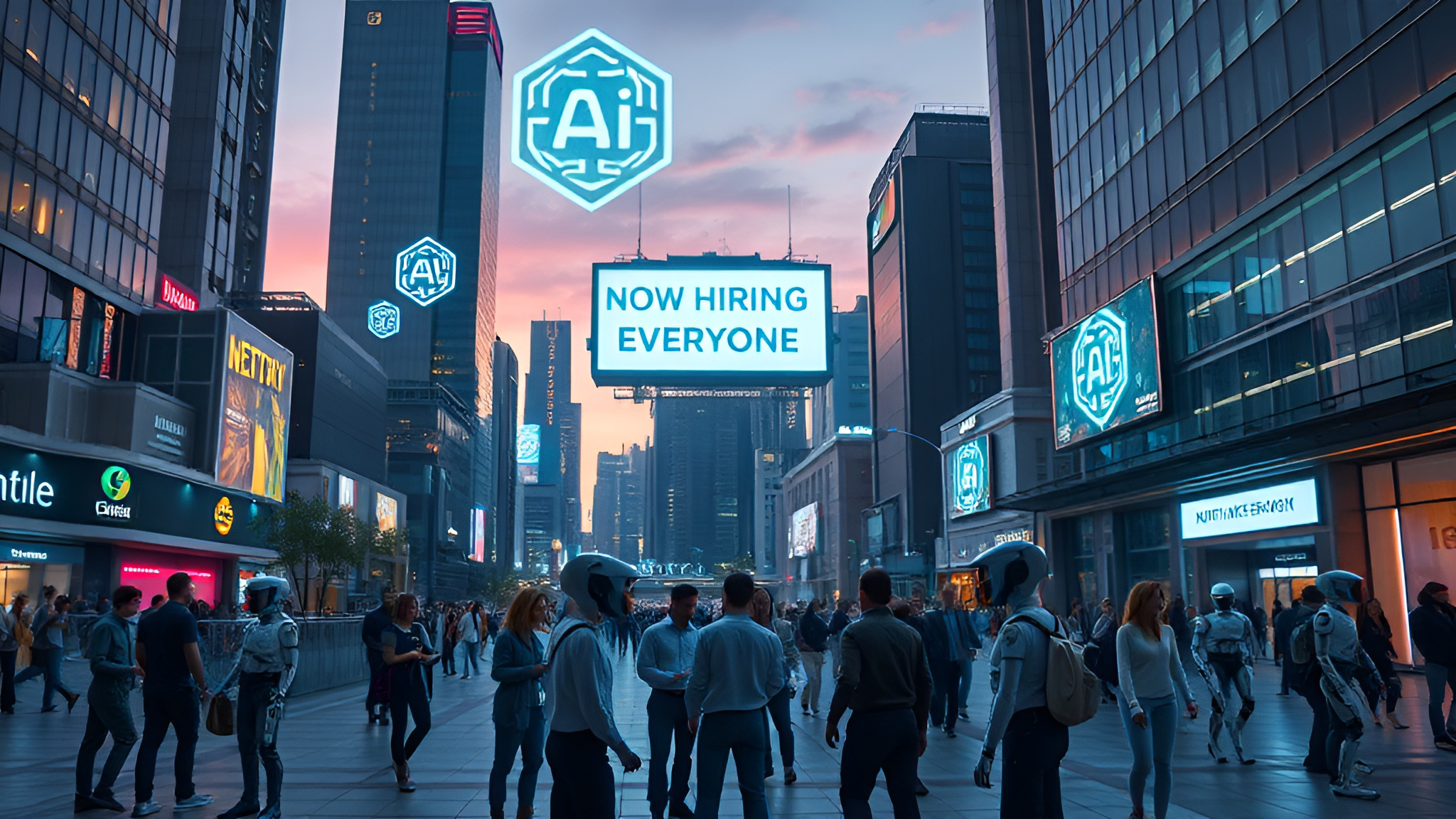Will AI take your job—or create a better one? In 2025, the rise of artificial intelligence and quantum computing is reshaping employment across nearly every sector. While headlines warn of widespread AI jobs replacement, history tells a different story. Technological revolutions—from steam engines to the internet—have consistently created more jobs than they destroyed. This article explores the risks and opportunities, backed by fresh data, expert insight, and actionable strategies.
History Lesson: Why New Technology Often Creates More Jobs Than It Destroys
Are there AI jobs opportunity in 2025? In this article, we’ll explore how automation is changing the work scene.
Whenever a new technology emerges, fears of job loss follow. Yet history shows that innovations—like electricity, the internet, and automation—don’t just replace jobs. They transform them. Within 50 years of the Industrial Revolution (1760–1840), over 60% of jobs were either modified or entirely new (McKinsey Global Institute). For every replaced role, new fields emerged—web development, renewable energy, and digital marketing.
The takeaway: Humans are uniquely capable of reinventing work. The AI revolution may eliminate some roles, but it’s already creating others we couldn’t have imagined.
What Is Driving AI Jobs Replacement?
Artificial intelligence and automation are accelerating. Tools like ChatGPT, Midjourney, and robotic process automation are already integrated into businesses worldwide. Meanwhile, quantum computing—still emerging—could further turbocharge AI’s abilities.
According to McKinsey (2023), up to 30% of tasks in 60% of all jobs could be automated by 2030. Industries seeing early disruption include:
- Customer service
- Data entry
- Basic programming
- Entry-level finance and analysis
AI Jobs Replacement in 2025: Who Is Most at Risk?
The roles most threatened by AI include:
- Clerks & data entry staff – easily automated by OCR and bots
- Call center agents – replaced by AI chat
- Junior finance analysts – AI handles forecasting and reporting
- Basic programmers – tools like GitHub Copilot write code faster
Even white-collar sectors like law, logistics, and radiology are seeing shifts.
McKinsey estimates that by 2030, up to 375 million people worldwide may need to switch job categories.
While many jobs face disruption, others are thriving thanks to the very skills AI lacks—empathy, creativity, and adaptability.
What Jobs Are Safe From AI Jobs Replacement?
The most resilient roles share one thing: human depth. Examples include:
- Skilled trades – like electricians and plumbers, need hands-on adaptability
- Healthcare – nurses, therapists, and doctors rely on empathy and judgment
- Education & mentorship – critical thinking and live guidance
- Design & creative strategy – AI mimics, but doesn’t innovate
- AI & robotics engineers – building the very systems causing disruption
From At-Risk to AI-Proof: How to Pivot
Many governments are preparing citizens for this shift. Singapore’s SkillsFuture program has retrained over 500,000 workers in AI-related skills since 2020.
Examples of pivots:
- Customer service reps → prompt engineers
- Data entry clerks → AI quality assurance roles
- Truck drivers → autonomous fleet managers
The U.S. CHIPS Act and European Year of Skills 2023 are also funding mass retraining in STEM and AI disciplines.
AI Jobs Opportunities in 2025: Hybrid Roles on the Rise
AI is opening the door to entirely new or hybrid careers:
- AI engineers / ML specialists – core builders of intelligent systems
- MLOps professionals – deploying AI safely and at scale
- Prompt engineers – shaping how AI interprets instructions
- AI ethicists – balancing innovation with safety
- Quantum-AI specialists – using quantum to enhance deep learning
- AI translators – explaining AI to executives or users
Hybrid professionals (humans + AI):
- Marketers use AI for sentiment tracking + brand voice
- HR uses AI for screening, then applies human nuance
- Lawyers use AI for draft work, but negotiate and argue in person
How to Future-Proof Your Career for the AI Era
Actionable tips:
- Upskill in AI:
- Build soft skills: leadership, empathy, negotiation
- Think in systems: Understand how tech impacts your field
- Explore new tools: Play with ChatGPT, Midjourney, Qiskit
- Join communities: Subreddits, Discords, GitHub
The Quantum Wild Card: How Quantum Computing Might Change AI Jobs Opportunities
Quantum computing is like giving AI a supersonic jet.
It solves problems—like route optimization or drug simulation—100x faster than traditional computers (IBM 2024).
This tech will likely create:
- Quantum software engineers
- Quantum-AI liaisons in healthcare, logistics, finance
- Optimization analysts for supply chains, weather, climate science
But don’t worry—quantum is still in its early phase. Now’s the perfect time to get curious and start exploring.
Frequently Asked Questions
Which jobs are most likely to be replaced by AI?
Repetitive, rules-based jobs like data entry, customer service, and some junior analyst positions.
How do I transition to a secure role?
Upskill in areas like Python, data analysis, ethics, and prompt engineering.
Is it too late to learn AI skills?
No. Many top-tier programs are free or under $100.
Will quantum computing create jobs or eliminate them?
It will create specialized, high-paying jobs in science, logistics, and AI development.
How soon will AI disrupt my job?
Low-complexity roles are already being automated in 2024–2025. Higher-order jobs have more time to adapt.
Can creative jobs be replaced by AI?
Not fully. AI can imitate but not innovate. Storytelling, humor, empathy, and originality still belong to humans.
Conclusion: The AI Jobs Revolution—Replacement or Opportunity?
AI and quantum computing are rewriting the rules of employment. Some jobs will vanish. Others will explode in demand.
But this isn’t a warning—it’s a wake-up call.
The AI jobs revolution isn’t about replacement—it’s about opportunity.
With curiosity, upskilling, and adaptability, you can thrive in tomorrow’s job market.






